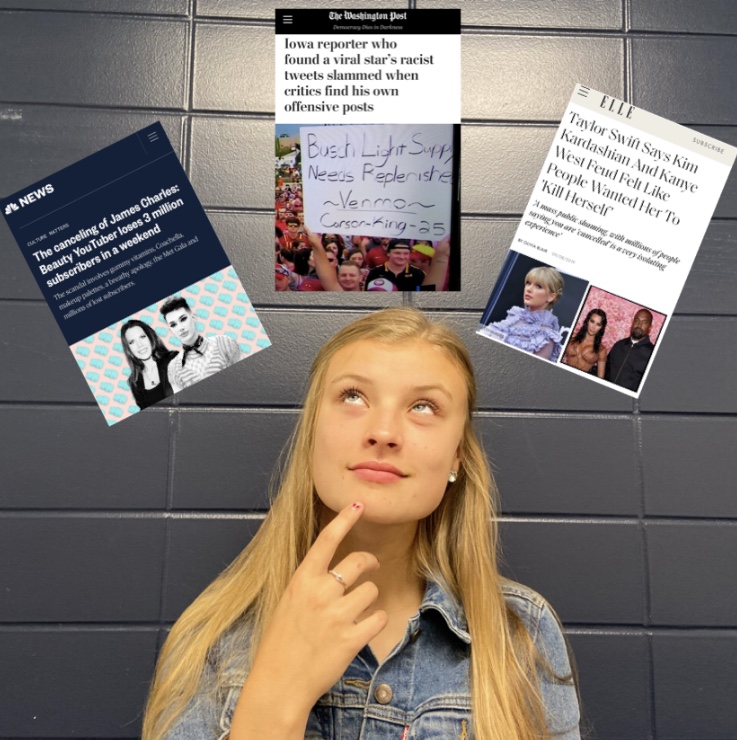In society today, social media is a powerful tool. But many people have found out in recent months just how detrimental the effects of an ignorant past can be to a person’s future.
Such examples can even be found close to home.
The Des Moines Register found itself under fire this week after a journalist, Aaron Calvin, attempted to ‘cancel’ Carson King and the goals of his charity due to resurfaced racist tweets from King’s past, as written about previously by the Spartan Shield. Instead, Calvin cancelled himself as his own insensitive tweets came to light.
At its core, the basis of cancel culture stems from the idea of diminishing or devaluing the magnitude of the success of famous figures. Dozens of celebrities are all too familiar with such problems.
High profile scandals such as the ones of James Charles and Taylor Swift have directly affected the behavior of many teens. Once the leaders of two huge fan followings, both have suffered recently.
Swift was called out for lying and scamming in a feud with Kim Kardashian and her husband, Kanye West. While this occurred a few years ago, many found her character untrustworthy as a result, stopped supporting her music. On the flip side, millions of loyal fans defended her name and believed the media went too far.
Senior and avid Swift fan, Jenna Riordan, believes that social media contributes to a large part of the scale of these ‘cancellations’ and puts too much pressure on celebrities to create a perfect image.
“The way Taylor Swift was portrayed by the Kardashians on social media made her out to be the bad guy when that wasn’t the case,” she said. “This caused her to lose a lot of followers and fans and pushed her away from the spotlight, which she didn’t deserve.”
James Charles, YouTuber and beauty guru, experienced a similar backlash from the unforgiving media this summer after a very public argument with fellow beauty expert, Tati Westbrook. Again, accused of lying and using ulterior tactics to gain more followers, Charles experienced a huge drop in his fan base.
Former Charles follower and junior, Isabel Russmann, thinks he got what was deserved. “He had a huge following on all of his social media platforms before the scandal and now he has a considerably smaller amount,” she said. “I used to love watching his videos, but I feel as if he betrayed his fans and now I don’t watch any of them.”
These celebrities are huge role models to many children and teens, so their behavior is constantly under scrutiny. It is essential to their success to keep a clean image, but no one is perfect. Teens agree that while some of these ‘cancellations’ were deserved, others were a result in harsh treatment by the media.
Today, silly mistakes from one’s past can come back to haunt them and even damage their current career and future successes. In the social media era, society has become more judgemental and less forgiving, especially for those in the spotlight.
While social media can cause an undeserving downfall to some, it can also be helpful in showing the true colors of some celebrities.
“I’m glad the scandal happened publicly over multiple social media platforms,” Russmann said. “It forces ‘cancelled’ celebrities to own up to their actions publicly, which I think is sometimes necessary.”
In many cases, such as Swift’s and King’s, when the situation is handled in a responsible manner, their reputations are able to recover. Many understand that everyone, even celebrities, are humans and make mistakes. History shows that when ownership and apologetic actions are taken, the public is much more likely to regain respect toward whom was cancelled.
Research shows that with the rise of numerous new social media platforms, the way teens choose to view famous figures will only continue to deviate from the way they view themselves and their peers. The cruel and harsh nature of cancel culture, which begins online, translates to real life. And it will not be going away anytime soon.









